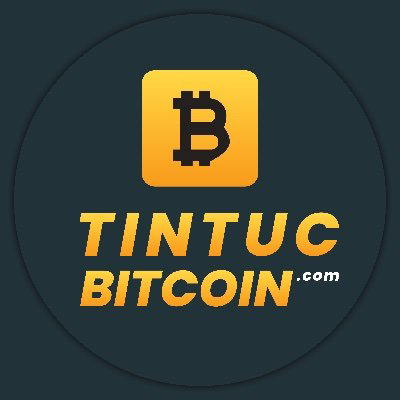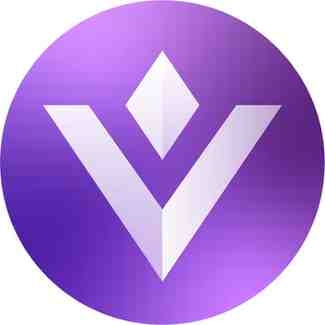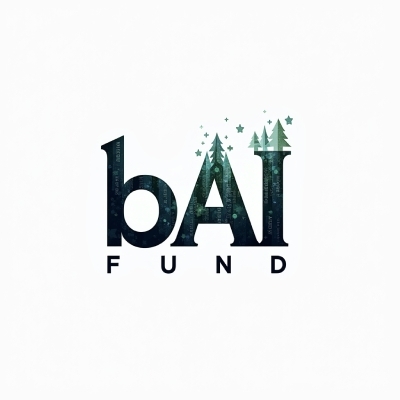

Stellar 價格XLM
您今天對 Stellar 感覺如何?
Stellar 今日價格
XLM 的最高價格是多少?
XLM 的最低價格是多少?
Stellar 價格預測
什麼時候是購買 XLM 的好時機? 我現在應該買入還是賣出 XLM?
XLM 在 2026 的價格是多少?
XLM 在 2031 的價格是多少?
Stellar 價格歷史(TWD)
 最低價
最低價 最高價
最高價 
Stellar 市場資訊
Stellar 行情
Stellar 持幣分布集中度
Stellar 地址持有時長分布

Stellar 評級
Stellar (XLM) 簡介
關於 Stellar
Stellar(XLM)是一個去中心化的區塊鏈平台,致力於以快速、安全、有成本效益的方式處理交易。Stellar 剛開始是 Ripple 協議的一個分支,後來迅速發展為一家擁有自主權的企業,也有了自己獨特的設計和目標。
Stellar 發展基金會負責監督 Stellar 網路的開發和推廣,它的使命是彌補全世界的個人、企業、金融機構之間的差距,尤其是那些很難使用傳統銀行系統的人們。2023 年 1 月時,Stellar 發展基金會針對 Genesis 提出了 1,300 萬美元的索賠,邁出了不平凡的一步。
與許多其他區塊鏈網路不同的是,Stellar 背後並不是能源密集型的挖礦。相反地,它利用了 Stellar 共識協議(SCP),就是一種聯合共識機制,以驗證交易。這一個共識協議提高了 Stellar 的效率和生態友善性,和它的願景是一致的,也就是為所有人提供可使用、有效率的金融服務。
資源
白皮書:https://www.stellar.org/papers/stellar-consensus-protocol
Stellar 是如何運作的呢?
- 共識機制:Stellar 是運行在 Stellar 共識協議(SCP)之上的,它是一個聯邦拜占庭協議系統。這個共識機制可以讓節點(Stellar 驗證者)以去中心化的方式,針對交易的有效性達成共識。此過程涉及了一系列的投票,直至達成共識為止,進而達成安全、快速的交易結算。
- 錨定和發行資產:Stellar 的架構可以讓各種資產顯示在網路上。這些資產可能包含了加密貨幣、法定貨幣、商品,甚至是客製化代幣。為了把外部資產引入 Stellar 網路,一種被稱為「錨點」的實體可以被當作中間的可靠媒介。錨點可以方便網路內外資產的充值或提領,達到傳統金融系統與 Stellar 區塊鏈之間的順暢整合。
- 去中心化交易所(DEX):多虧此平台原生的去中心化交易功能,用戶可以直接在 Stellar 網路上交易各種資產。這一個功能不僅增加了流動性,也提高了資產轉換的效率,讓用戶可以方便地將一種資產兌換成另一種資產,而且無需依賴外部的交易所。
- 智能合約和客製化代幣:雖然 Stellar 主要並不像以太坊那樣以複雜的智能合約而聞名,但它確實提供了簡單的可編寫程式的功能,可用於自動執行特定的操作。此外,Stellar 支援建立客製化代幣,讓用戶可以在網路上發行自己的數位資產。這些客製化代幣可以代表任何內容,從忠誠度積分到證券都可以,進而擴展了平台的實用性和潛在的應用場景。
什麼是 XLM 代幣呢?
Stellar 網路的原生加密貨幣就被稱為 XLM(Stellar Lumens)。XLM 在 Stellar 生態系中扮演著重要的角色,可當作促進資產交易和跨境交易的橋樑代幣。
XLM 的主要功能:
- 交易費:XLM 可用於支付 Stellar 網路上的交易費。當用戶執行付款,或是交易資產等操作時,少量的 XLM 就會被燒毀,也就是從市面上的流通中移除,以作為使用網路的費用。
- 反垃圾郵件措施:XLM 中的象徵性交易費用可當作一個反垃圾郵件機制,以防止網路被不必要或惡意的交易淹沒。
- 流動性橋樑:XLM 可以當作 Stellar 網路上不同資產之間的流動性橋樑。當用一種資產交易另一種資產時,XLM 可以充當中間媒介,讓資產轉換更加順暢。
- Stellar 社群獎勵:在 Stellar 早期時,可透過各種計劃和合作夥伴獲得 XLM,以發展網路,並建立一個繁榮的用戶與開發人員的社群。
是什麼決定了 Stellar 的價格呢?
今天的 Stellar(XLM)價格受到無數的內外部因素的影響,這些因素又以複雜的方式相互作用著。主要的內部因素之一,就是 Stellar 在促進低成本跨境交易方面的功能。Stellar 網路使用其原生數位貨幣 Lumens(XLM)作為快速、高效的代幣兌換的橋樑,進而影響目前的 Stellar 的價值。
多虧了 Stellar 共識協議(SCP),此網路提供了高速交易和低廉的交易費,使其有別於比特幣、以太坊等其他種加密貨幣。截至 2023 年 9 月為止,目前的 Stellar 市值約為 33 億美元。這反映出了它的實用性和使用率,這些因素反過來又直接影響 Stellar 的價值,以及其價格的歷史紀錄。
在決定 Stellar 價格方面,外部因素也扮演著重要角色。市場情緒通常是透過 Stellar 價格分析,以及 Stellar 價格預測模型來衡量的,可以帶動 Stellar 交易價格的波動。與金融機構和其他組織的合作也可以明顯地影響 Stellar XLM 的價格預測。例如:Stellar 與烏克蘭數位化轉型部門合作,推出了中央銀行數位貨幣(CBDC),在業界引起了轟動。
此外,影響整個加密貨幣市場的宏觀經濟趨勢(例如:監管新聞、比特幣等其他種加密貨幣的重大價格變化等)也可能會影響 Stellar 的即時價格。投資者會經常查閱 Stellar 價格圖表和 Stellar 價格歷史記錄,以做出明智的決定。他們會密切關注 Stellar 價格趨勢和 2023 年的 Stellar 價格預測模型,以衡量 Stellar 未來的表現。
結論
總而言之,Stellar 的去中心化區塊鏈平台是由 Stellar 共識協議所驅動的,可確保快速、划算的交易,而且無需能源密集型的挖礦。憑藉其對於金融普惠性和橋樑代幣 XLM 的努力,Stellar 有潛力能徹底改變金融產業,改善全球金融的可使用性和流動性。
值得注意的是,與任何其他加密貨幣一樣,Stellar 也有其自身的風險,在投資時請自行研究,並謹慎行事。
XLM 兌換當地法幣匯率表
- 1
- 2
- 3
- 4
- 5
如何購買 Stellar(XLM)

建立您的免費 Bitget 帳戶

認證您的帳戶

將 Stellar 兌換為 XLM
交易 XLM 永續合約
在 Bitget 上註冊並購買 USDT 或 XLM 後,您可以開始交易衍生品,包括 XLM 合約和槓桿交易,增加收益。
XLM 的目前價格為 NT$8.8,24 小時價格變化為 -1.21%。交易者可透過做多或做空 XLM 合約獲利。
Stellar 動態





購買其他幣種
用戶還在查詢 Stellar 的價格。
Stellar 與比特幣和以太坊等其他區塊鏈平台有何不同?
什麼是恆星流明 (XLM)?
有多少恆星幣 (XLM) 正在流通?
恆星流明 (XLM) 可以質押或開採嗎?
Stellar Lumens (XLM) 的價格能達到 1 美元嗎?
恆星網絡的安全性如何?
Stellar 的目前價格是多少?
Stellar 的 24 小時交易量是多少?
Stellar 的歷史最高價是多少?
我可以在 Bitget 上購買 Stellar 嗎?
我可以透過投資 Stellar 獲得穩定的收入嗎?
我在哪裡能以最低的費用購買 Stellar?
您可以在哪裡購買 Stellar(XLM)?
影片部分 - 快速認證、快速交易

Bitget 觀點




相關資產
































Stellar 社群媒體數據
過去 24 小時,Stellar 社群媒體情緒分數是 3.5,社群媒體上對 Stellar 價格走勢偏向 看漲。Stellar 社群媒體得分是 19,089,在所有加密貨幣中排名第 165。
根據 LunarCrush 統計,過去 24 小時,社群媒體共提及加密貨幣 1,058,120 次,其中 Stellar 被提及次數佔比 0.03%,在所有加密貨幣中排名第 93。
過去 24 小時,共有 894 個獨立用戶談論了 Stellar,總共提及 Stellar 309 次,然而,與前一天相比,獨立用戶數 增加 了 8%,總提及次數減少。
Twitter 上,過去 24 小時共有 13 篇推文提及 Stellar,其中 38% 看漲 Stellar,0% 篇推文看跌 Stellar,而 62% 則對 Stellar 保持中立。
在 Reddit 上,最近 24 小時共有 3 篇貼文提到了 Stellar,相比之前 24 小時總提及次數 減少 了 0%。
社群媒體資訊概況
3.5